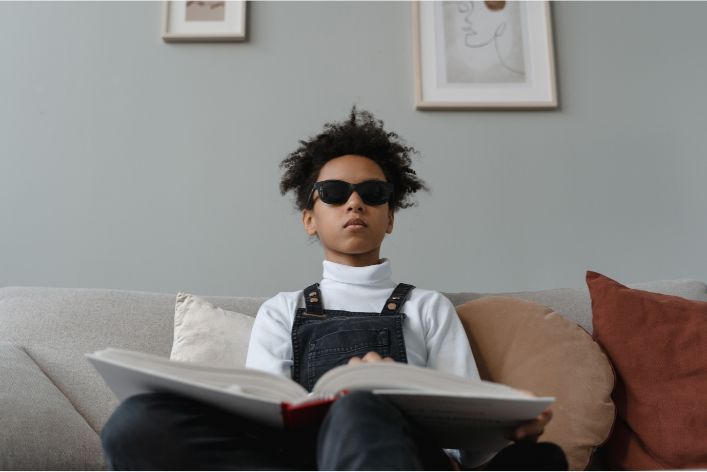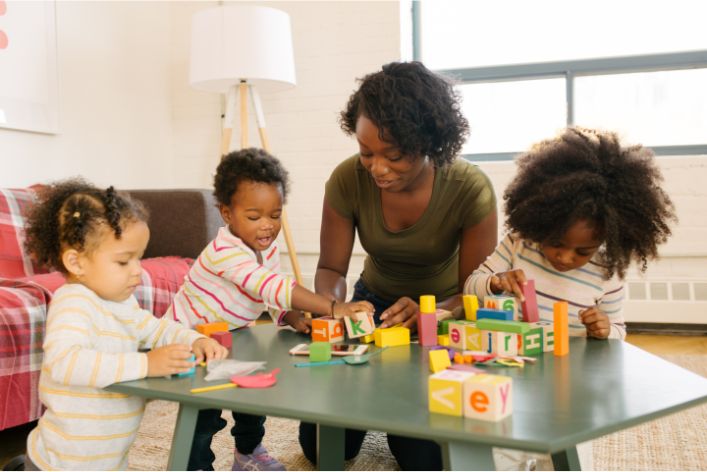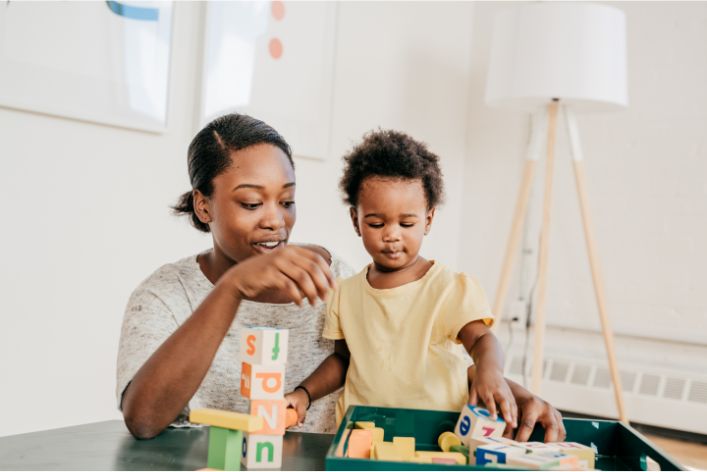Introduction
Special education is an essential aspect of education that tailors the learning process to meet the unique needs of students with disabilities in Nigeria.
The significance of this type of education cannot be overemphasized, and it is critical for achieving inclusive education for all.
Unfortunately, students with disabilities face tons of challenges that are both academic and social.
Understanding Special Education
Special education is an approach to teaching students with disabilities that require individualized attention and assistance.
It ensures that every student, regardless of their abilities, can access quality education and achieve their maximum potential.
In this section, we will define special education, discuss types of disabilities, and highlight standard procedures for identifying disabilities.
Definition of Special Education
Special education refers to a customized instructional approach designed to meet the unique developmental, emotional, and educational needs of students with disabilities.
In most cases, students with disabilities require a modified curriculum or individualized education plan (IEP) that includes specialized instruction and support services.
- Customized Instructional Approach: Special education tailors curriculum, instructional strategies, and teaching materials to meet individual students’ needs.
- IEP: An IEP is a written plan that outlines a student’s educational goals, required services, and accommodations necessary to achieve academic success.
- Special Support Services: Students with disabilities may require specialized support services, such astherapies, counseling, or assistive technology, to enhance their learning experience.
Types of Disabilities
Special education programs cater to students with an array of disabilities that affect their learning, behavior, or physical abilities.
Here are some different categories of disabilities:
- Physical Disabilities: Physical disabilities refer to conditions that limit an individual’s mobility or motor function, such as cerebral palsy, spina bifida, or muscular dystrophy.
- Sensory Disabilities: Sensory disabilities affect the five senses and can include visual impairment, hearing loss, or deaf-blindness.
- Cognitive Disabilities: Cognitive disabilities involve difficulties with processing, receiving, or transmitting information, and can include autism, dyslexia, or intellectual disabilities.
- Emotional and Behavioral Disabilities: Emotional and behavioral disabilities can affect a student’s ability to manage their emotions and behaviors, such as attention-deficit/hyperactivity disorder (ADHD), anxiety, or depression.
Standard Procedures for Identifying Disabilities
The process for identifying a student with a disability typically involves multiple professionals, such as teachers, psychologists, or medical practitioners.
There are standard procedures for conducting evaluations and determining eligibility for special education services:
- Referral: A student is referred for assessment because of concerns about their development or academic progress
- Evaluation: The student is evaluated by a team of professionals to assess their academic, social, emotional, and behavioral functioning.
- Eligibility Determination: The evaluation team determines whether the student meets the criteria for a disability under the Individuals with Disabilities Education Act (IDEA).
- Individualized Education Plan (IEP): If the student is found eligible, an IEP is developed that outlines the specialized instruction and support services necessary for the student to succeed in school.
- Periodic Review: The IEP is reviewed periodically to ensure that the student’s educational goals and required services remain appropriate.
In general, special education is a vital component of the education system that ensures equitable access to education for all students, regardless of their learning abilities.
Understanding the definition of special education, types of disabilities, and standard procedures for identifying disabilities is crucial for parents, educators, and policymakers to develop effective special education programs.
Read: The Nigerian Education Landscape: A Parent’s Roadmap
Legal Framework for Special Education in Nigeria
Special education in Nigeria is regulated by a legal framework that includes laws, policies, and regulations. Below are some key aspects of the legal framework for special education in Nigeria:
Role of the Government in Ensuring Access to Special Education
- The Nigerian government is responsible for providing access to education for all children, including those with disabilities.
- The government has established special schools, rehabilitation centers, and special education programs to cater to the needs of children with disabilities.
- The government also provides financial support to families of children with disabilities through the National Disability Fund.
The Disability Rights Act and its Provisions
- The Disability Rights Act is a federal law that protects the rights of people with disabilities, including their right to education.
- The Act prohibits discrimination against people with disabilities in all areas of life, including education.
- The Act mandates that all schools should provide reasonable accommodations and necessary support to students with disabilities.
- The Act also requires schools to make their facilities and services accessible to students with disabilities.
Schools’ Responsibilities in Accommodating and Supporting Students with Disabilities
- Schools have a legal obligation to provide inclusive education to students with disabilities.
- Schools should create a welcoming and supportive environment for students with disabilities.
- Schools should provide appropriate accommodations and support to ensure that students with disabilities can access and participate in learning activities.
- Schools should involve parents, caregivers, and other stakeholders in the planning and implementation of programs for students with disabilities.
In review, the legal framework for special education in Nigeria provides a basis for ensuring that children with disabilities have access to education.
Parenting Made Just for You
Get personalized Parenting Solutions tailored to your child’s needs. Transform your parenting journey with expert guidance in 1-3 days.
Get StartedThe government has a key role to play in providing access to education, while the Disability Rights Act and other laws protect the rights of people with disabilities.
Schools also have a responsibility to provide inclusive education and support to students with disabilities.
By working together, we can overcome the hurdles facing special education in Nigeria and ensure that all children have the opportunity to reach their full potential.
Read: Educating Parents: Navigating School Challenges in Nigeria

Overcoming Hurdles in Special Education
Special education is an essential aspect of the education system that provides support and services to students with disabilities.
Despite the government’s efforts to promote special education in Nigeria, several challenges still hinder effective implementation.
In this section, we will discuss some of the hurdles in special education and strategies for addressing them.
Stigma and Discrimination towards Students with Disabilities
Stigma and discrimination towards students with disabilities remain a significant concern in Nigeria. Many people still believe that children with disabilities are cursed or punished for their sins, making them inferior to others.
As a result, children with disabilities are often stigmatized and discriminated against, which affects their self-esteem, confidence, and academic performance.
To address this challenge, the government needs to raise awareness about disabilities and educate people on the need for inclusive education.
Schools should also promote inclusivity by treating children with disabilities with respect and dignity, ensuring that they have equal access to educational resources and opportunities.
Lack of Trained Teachers and Support Staff
Another significant challenge in special education is the lack of trained teachers and support staff. Many regular teachers lack the skills and knowledge to teach children with disabilities effectively.
Similarly, there is a shortage of qualified professionals such as speech therapists, occupational therapists, and psychologists to provide the necessary support services to students with disabilities.
To overcome this challenge, the government should invest in training and equipping teachers with the knowledge and skills to teach children with disabilities.
Unveil the Perfect Name that Tells Your Family's Story
Let us help you find a name that embodies your family's values, traditions, and dreams. Our personalized consultation weaves cultural insights to create a name that's uniquely yours.
Get StartedAdditionally, the government should recruit and train more support staff to provide therapies and other services required by students with disabilities.
Inadequate Funding and Resources
The provision of quality special education requires adequate funding and resources. Unfortunately, many schools lack the necessary resources to meet the unique needs of students with disabilities.
This includes assistive devices, special classrooms, and instructional materials.
The government must allocate more resources towards special education and ensure that schools have the necessary funds to provide quality services.
Schools can also leverage community resources and partnerships to bridge the funding gap, such as seeking donations, grants, or collaborating with non-governmental organizations.
Strategies for Addressing These Challenges
To address the challenges facing special education in Nigeria, the government can implement the following strategies:
- Establish policies and laws that protect the rights of children with disabilities, promote diversity, and equity in the education sector.
- Provision of adequate funding and resources to support the implementation of special education programs.
- Investment in teacher training and professional development to equip them with the necessary skills to teach and support children with disabilities.
- Collaboration with relevant stakeholders such as parents, schools, and non-governmental organizations to provide comprehensive support services to children with disabilities.
- Establishment of special education centers and resource rooms in schools to cater for the unique needs of students with disabilities.
- Creation of awareness and advocacy campaigns to combat stigma and discrimination towards children with disabilities and promote inclusive education.
In fact, special education is critical in ensuring that children with disabilities receive quality education and lead fulfilling lives.
While several challenges hinder effective implementation, the government can overcome them by implementing appropriate policies, investing in training and resources, and collaborating with stakeholders.
Read: From Cradle to Campus: A Nigerian Parent’s Journey in Education
Supporting Students with Disabilities
Students with disabilities face a number of challenges in accessing education and learning. It is important for educators, parents, and communities to work together to create inclusive and accessible environments to support these students in their educational journey.
Creating Inclusive and Accessible Environments
- Ensure that classrooms are wheelchair accessible and have appropriate seating for students with physical disabilities
- Create an inclusive classroom culture by promoting respect and understanding for all students
- Include students with disabilities in classroom activities and discussions
- Provide materials in different accessible formats, such as braille, large print, or audio
Assistive Technology and Devices
- Provide assistive technology and devices to support students with disabilities, such as text-to-speech software or communication devices
- Train teachers and support staff on how to use assistive technology and devices effectively
- Ensure that assistive technology and devices are well-maintained and in good working order
Individualized Education Plans (IEPs)
- Create and implement IEPs for students with disabilities that outline their unique needs and goals
- Ensure that IEPs are reviewed regularly and updated as needed
- Involve parents and students in the development of IEPs to ensure their input is included
Collaborative Partnerships Among Schools, Parents, and Communities
- Work in partnership with parents and families to build a supportive network for students with disabilities
- Collaborate with community organizations and resources to provide additional support and services for students with disabilities
- Train and support teachers and school staff to effectively work with students with disabilities
By creating inclusive and accessible environments, providing assistive technology and devices, developing and implementing individualized education plans, and building collaborative partnerships, we can better support students with disabilities in accessing education and achieving their full potential.
Read: Nurturing Geniuses: A Nigerian Parent’s Guide to Gifted Education
Conclusion
Creating an enabling environment for students with disabilities is crucial in Nigeria. When given equal opportunities, individuals with disabilities have the potential to reach their full potential. Therefore, it is important to invest in special education in Nigeria.
Every child deserves a chance to learn, grow, and achieve their dreams. With the right support and resources, students with disabilities can overcome hurdles and succeed in life.
It is the responsibility of the government and society to provide equal access to education for all students, regardless of their abilities.
Investing in special education is not only a moral obligation but also an economic one. It can lead to increased employment opportunities, reduced poverty rates, and a better quality of life for individuals with disabilities and their families.
By collaborating, we can foster a more inclusive society that values and empowers every individual.
Therefore, we call on the government, private sector, and individuals to invest in special education in Nigeria. Let’s work towards building a more inclusive society where every child has an opportunity to thrive.




